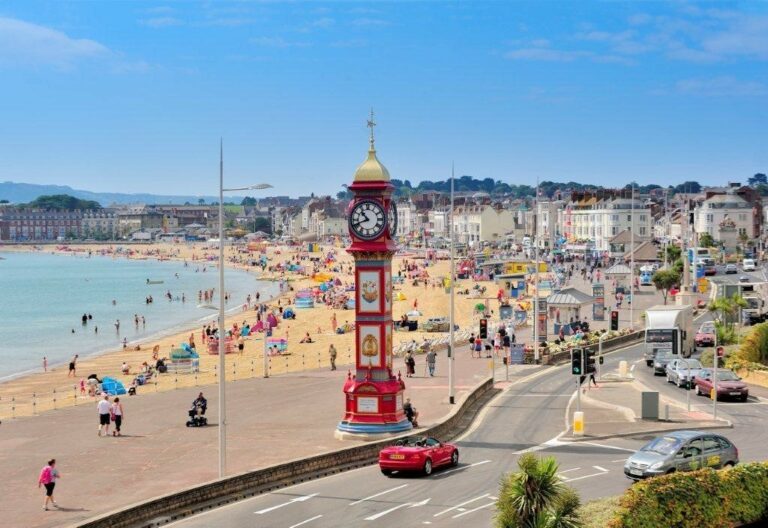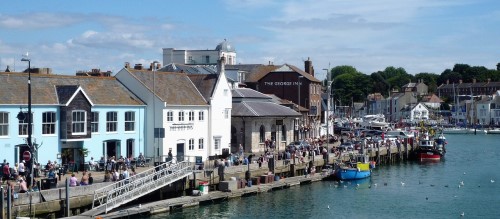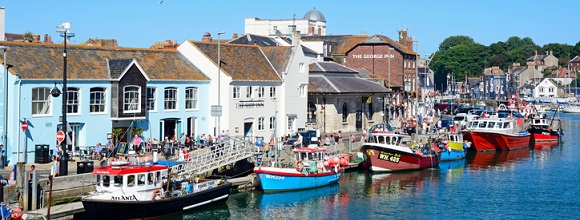Since the end of lockdown, Weymouth has become one of the most sought-after places to live in the U.K. After years of being Dorset’s ‘forgotten’ town, the frantic activity in the U.K. housing market has catapulted it into the spotlight and demand for homes and second homes has surged. According to Zoopla, the price of a family home in Weymouth rose by 115% between March and May, the second biggest rise in the U.K. behind Scarborough. This has helped reverse a decline in prices that have beset the home – and more importantly, the second home – market in recent years.
While this is good news for us – we can’t recall the last time we saw so many requests for home, landlord, and holiday home insurance – it’s made us question why Weymouth is suddenly the place to be? Also, is such a boom sustainable, and what does the future hold for Weymouth’s property market.
To answer these questions, we set our M.D. and local property insurance expert and Weymouth advocate John Palmer to shed some light on matters.
Why Is Weymouth’s Property Market Booming?
Before we get into the why’s and wherefores, I think it is worth putting some context around Weymouth’s housing market. The 115% figure is remarkable, and as anyone who’s tried to buy a family home in the area this year will tell you, you need to be quick if you’re not going to miss out. Yet, deespite this explosion in demand Weymouth is still relatively affordable, and properties are on average 15% cheaper than in the rest of Dorset. The average home in Weymouth has a price tag of £277,580. In Poole, the average is £337,936, in Dorchester it’s £357,580 and in Swanage it is £391,312.
Weymouth’s property market has endured a torrid time over the past few years. In 2019 prices for detached properties fell by an average of 11% to £289,000 and flat prices fell by 20% in the same period to £145,000, according to the Office for National Statistics. Pre-Brexit uncertainty killed the second home market and sent the local market tumbling.
What we’re seeing then, I think, is partly a correction, but there are other factors at work too, including:
• The working from home revolution – post lockdown, it seems everybody wants to be beside the seaside. Pre-lockdown if you wanted to live in Weymouth and work in, say, London, then you were definitely putting a lifestyle above practicality. The train takes 3¾ hours (assuming no delays!) whereas the trip from Bournemouth can be made in under 2. With remote working now available to millions, the opportunity to enjoy Weymouth’s charms is something a lot more people can enjoy.
• Weymouth’s (relatively) affordable – as I’ve said, Weymouth property is significantly more affordable than much of the rest of Dorset, and property here remains a relative bargain.
• Weymouth’s on the up – even the biggest fans of Weymouth would have to agree that the town hasn’t always had the best reputation. ‘Forgotten’, ‘down at heel’ and ‘shabby’ have all been used to describe it, and when I acquired Coversure Weymouth in 2019 there were still parts of it that justified such descriptions. Recently with investments in the Peninsula and the Council’s Town Centre Masterplan, it’s looking much brighter, and an influx of new people and new money can only help this.
• Weymouth’s brand awareness is rising – the last two summers have seen lockdown holidaymakers flock to Weymouth. It was the 8th most visited resort in the U.K. last year and it looks set to smash records this year. With more people having the freedom to live where they like so more are thinking, ‘Weymouth? Why not?’
Is Weymouth’s Property Boom Sustainable?
There’s been a tremendous amount of press speculation that the U.K. housing market is a bubble waiting to burst. Many seized upon Rightmove’s report that U.K. house prices fell by 0.5% in July and 0.3% in August, predicting the end of the stamp duty holiday would bring the market crashing down.
Personally, I don’t think that will happen. The housing market always slows over the summer months, and this year we have the added complication of whether remote working will be for the long-term. Many believe that T.W.T (Tuesday/Wednesday/Thursday) in the office will become normal for many while other firms will offer full-time remote working. Final decisions are still to be taken by many businesses, and until that’s resolved a lot of people will wait before making moves.
Rightmove’s report was upbeat and said it was expecting an ‘autumn bounce’ and that demand for small properties – a Weymouth speciality – remained strong. Underlying the rises we’ve seen is a lack of supply. Nationally the Government wants to see 300,000 homes built each year to address the housing crisis, but despite record activity in 2019, only 250,000 were constructed. Dorset isn’t immune to this problem. Local councils have pledged to build 20,000 new homes by 2033 to keep up with demand, but even if they do achieve that – only 737 were built each year between 2013-2018 – they will take time to come on stream, and that can only lead to prices rising.
Weymouth’s House Price Boom: Can It Continue?
I believe that Weymouth is in for a renaissance post-pandemic. Seeds planted some years ago are starting to bear fruit; the revolution in working practices has made it practical to live and work here, and it remains relatively affordable. I think that Weymouth’s day in the sun has finally arrived, and I, for one, could not be more pleased.
John
John Palmer
Managing Director
Coversure Weymouth
Get Some Local Insurance Help
If you’d like to know more about how Coversure Weymouth can protect you, your property or your business, then please get in touch. You can contact us on* 01305 510 344* or email the Coversure Weymouth team and let us keep protect what matters to you.


